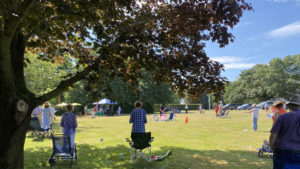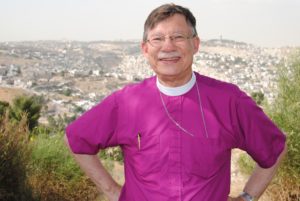 In his new book, The Heart of a Leader, Bishop Edward S. Little moves through 2 Timothy, drawing on the lessons and teachings of Paul as a guide for mentoring and encouraging others to a life deeply committed to Christ. Learn more about Bishop Little and our newest resource in this Q&A with the author.
In his new book, The Heart of a Leader, Bishop Edward S. Little moves through 2 Timothy, drawing on the lessons and teachings of Paul as a guide for mentoring and encouraging others to a life deeply committed to Christ. Learn more about Bishop Little and our newest resource in this Q&A with the author.
Could you introduce yourself to readers?
I’m a native New Yorker, born in Manhattan and raised in New York City and in the Connecticut suburbs. After graduating from the University of Southern California with a degree in history, I attended Seabury-Western Theological Seminary in Evanston, Illinois, and was ordained deacon and priest in 1971. Following two brief curacies, I served as rector of St. Joseph’s, Buena Park, California, and All Saints, Bakersfield, California. Then came the surprise of my life: in 1999 I was elected Bishop of Northern Indiana and became a Hoosier! From 2000-16, it was my privilege to oversee that wonderful diocese. Writing has always been an important part of my ministry. I’ve written two other books (Ears to Hear: Recognizing and Responding to God’s Call and Joy in Disguise: Meeting Jesus in the Dark Times) and articles for The Living Church and Christianity Today. I married my wife, Sylvia, in 1968; we have two children and two grandchildren. To my sorrow, Sylvia died in 2020. In retirement, I live in the South Bend area, assisting in a local parish and, on occasion, continuing my ministry of scribbling.
What was the most enjoyable part of writing The Heart of a Leader?
The book emerged out of a retreat for clergy that I offered in the Diocese of Northwestern Pennsylvania. As I searched for a topic, I was drawn to St. Paul’s Second Letter to Timothy. In the timeline of Paul’s life, this was his final letter, and he is reminding his understudy, Timothy, to be faithful to Paul’s teaching and example. Put briefly, Second Timothy is advice from a mentor to his apprentice. The more I pondered the letter, the more excited I became. It’s a training manual, a book of encouragement, and an outline of how a leader guides the church. Over the years, I offered the retreat in several other dioceses (including my own), and used some of the material in work with lay leaders. Eventually I decided to turn all of this material into a book. Writing The Heart of a Leader gave me the opportunity to ponder my own leadership and to think about the mentors who had shaped my life and my ministry. That, perhaps, was the greatest joy. It’s my “thank-you letter” to the people who helped me to become the Christian and the leader that I am.
What was the most difficult part?
I faced two major challenges. First, as I “translated” the retreat notes into text, I had to change the emphasis from clergy leadership to the leadership of both lay and ordained Christians. The retreat, of course, had been given in the setting of communities of clergy; and so the examples and the focus of much of the material was on the unique leadership responsibilities of the ordained. The book, on the other hand, looks at a wide range leadership, and seeks to encourage all Christians. At times I struggled to adapt the material and find more broad-based illustrations; but ultimately it all came together. The second challenge was personal. My first two books were written on sabbatical, produced over a couple months of intense work. The Heart of a Leader, on the other hand, was written after my retirement. My wife was in the final years of her illness, and the main focus of my life was rightly on caring for her. That meant that the writing was done in short bursts, often separated by days or weeks or, in one instance, months. When the first draft was complete, the writing seemed choppy, and the paragraphs didn’t hang together as well as I wanted. Happily, the Rev. Nancy Hopkins-Green, the editor whom Forward Movement assigned to work with me, helped me to smooth out the text and make it a better-flowing book.
What would you do if you felt stuck while researching or working on this book?
Typically, I produce somewhere between 750 and 1,000 words in a writing session. As I wrote The Heart of a Leader, the words often flowed easily, and I moved almost effortlessly from paragraph to paragraph. Occasionally, however, everything slowed down. Sometimes the issue was content. What was I actually trying to convey? At other times, I simply couldn’t produce text—interior or exterior distraction seemed to gum up my brain and the keyboard of my laptop. When that happened, I generally gave myself permission to stop, set aside the work, and begin afresh the next time. On the whole, that approach worked.
Where do you typically write?
I have never been able to write at home. Speaking of distractions! Sitting in my own study, surrounded by beloved books, with a television in the next room and chores always pressing in, I find that my mind gets drawn away from the task at hand. About two-thirds of The Heart of a Leader was written in the reading room of the Theodore M. Hesburgh Library on the campus of the University of Notre Dame. (One of the blessings of living in the South Bend area is the university and its resources.) The reading room is decked out with large desks (all with power plugs for laptops) and comfortable chairs. One wall is an enormous picture window that brightens the space and gives it a cheerful atmosphere. The room is usually filled with students, but the room’s culture demands absolute silence. The only sound is the clicking of laptop keys. The other setting for my writing was a small office at St. Paul’s, Mishawaka, Indiana, where I assist. St. Paul’s kindly provides me with a workspace on the second floor of its parish building. The room is outfitted with a desk and a comfortable chair—and nothing else. I’ve intentionally left the bookshelves bare. No distractions!
What is your ultimate goal for this book?
I mentioned earlier that Second Timothy is a training manual—and, specifically, a training manual for leaders. Many decades ago I read a commentary on Second Timothy by Anglican writer and priest John Stott entitled Guard the Gospel, and ever since I’ve returned again and again to this New Testament document for guidance. And so it was natural, when Bishop Sean Rowe of the Diocese of Northwestern Pennsylvania invited me to offer a retreat for his clergy, that I gravitated to Second Timothy. My goal in writing the book is to encourage leaders; to allow this letter to provide a set of priorities and principles that will help us to lead more faithfully and effectively. Because Second Timothy is a personal letter from a mentor to his protégé, the theme of mentorship weaves its way throughout The Heart of a Leader. Our mentors have formed us, challenged us, and reminded us of our calling. We in turn are called to pass on those lessons to the next generation of leaders.
What is your favorite prayer?
O God, by whom the meek are guided in judgment, and light riseth up in darkness for the godly: Grant us, in all our doubts and uncertainties, the grace to ask what thou wouldest have us to do, that the Spirit of wisdom may save us from all false choices, and that in thy light we may see light, and in thy straight path may not stumble; through Jesus Christ our Lord. Amen. —The Book of Common Prayer, p. 832
Is there anything else you’d like to share with readers?
It was an enormous privilege to write The Heart of a Leader. I had the opportunity to sit at the feet of St. Paul as he wrote his final advice to his protégé. In so doing, the Apostle spoke to me and, once again, became my mentor, model, and encourager. I pray that everyone who reads my book will be equally encouraged and equally challenged.
Order The Heart of the Leader today!
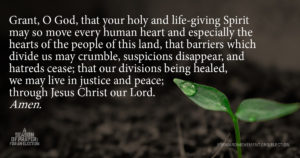
![]()




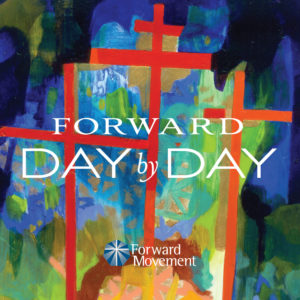



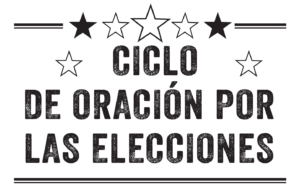
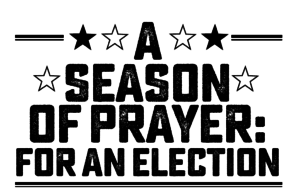
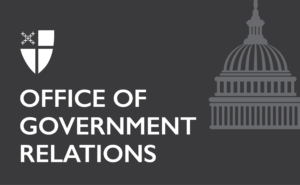
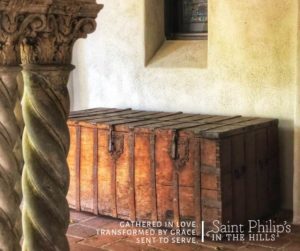
 In his new book,
In his new book, 